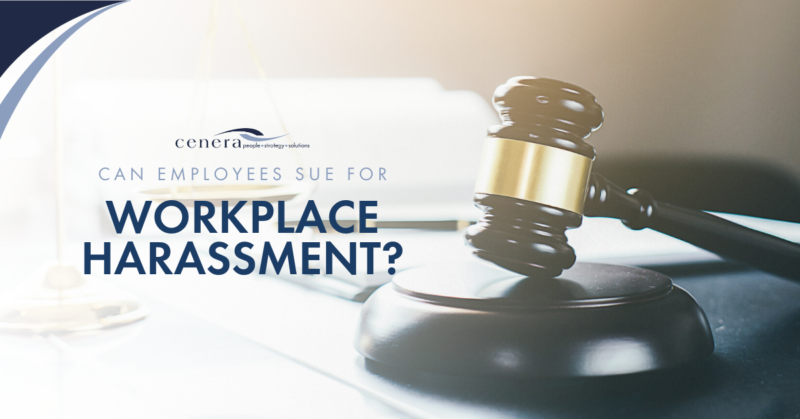Can Employees Sue for Workplace Harassment?
Can Employees Sue for Workplace Harassment?
Responsible employers understand their duty to maintain a safe work environment under the Alberta Occupational Health and Safety Act or similar laws in other jurisdictions, since failure to comply can result in liability. However, changes to employment law in Canada are continuous, and employers need to be aware of the impacts.
Canada’s Ever-Evolving Employment Law Landscape
Currently in Canada, employers have limited responsibility for harassing conduct between employees. According to international business law firm Torys LLP, “employees cannot rely on an employer’s negligence to ground a common law claim for mental suffering. They must prove their employer intended to cause the kind of harm that occurred or knew that it was almost certain to occur.”
However, a 2017 managerial bullying and harassment case, Merrifield v. Canada, sparked significant debate in the employment law realm when it recognized a freestanding tort of harassment.
What You Need to Know
Merrifield brought a civil claim against the RCMP, seeking damages for harassment and intentional infliction of mental suffering. The trial judge ruled in favour of Merrifield, awarding him $141,000 in general and special damages. Later, the Ontario Court of Appeal overturned the lower court’s decision, concluding that there is no independent common law tort of harassment…yet.
Merrifield v. Canada represents the first case in which the Canadian appeals court has considered whether a common law tort of harassment exists, and it shines a light on the gray areas and voids surrounding current laws. We predict Canadian courts will recognize a harassment tort in the future, and employers may be held liable for allowing harassing conduct between employees.
Shielding Your Business from Employee-Related Litigation
As the law develops and obligations expand, employers need to be prepared to defend against ground-breaking suits and, more importantly, prevent them from happening in the first place.
To protect your organization and employees, consider the following action steps:
Ensure supervisors and managers are well educated on obligations to prevent harassment in the workplace under employment law
Develop and enforce policies and procedures to prevent harassment
Provide ongoing respectful workplace training to all new and existing staff
Create a comprehensive employee handbook that includes information on how to how to identify and report harassment, how to document and report threats, and the steps your organization will take to investigate complaints
Diligently and adequately investigate all complaints and reports of harassment, either through an external third party or an experienced, impartial, internal staff member
Please note: the information in this article is not a substitution for legal advice. Please contact your legal counsel as required for updates in this area, and for advice if you think you may be facing legal action of any kind.
Canada’s employment laws and obligations are ever-evolving. Fortunately, Cenera’s experienced Workplace Investigators and HR Advisors are here to help. For more information on respectful workplace training, workplace violence and harassment policies and programs, or guidance on how to respond to workplace harassment complaints, contact us.
Book your consultation today!
P: 403.290.0466
E: info@cenera.ca
Let’s Connect
Never miss an update, click here to subscribe to our monthly newsletter.
Plus, follow us on LinkedIn!
Share This Story, and Choose Your Platform!

